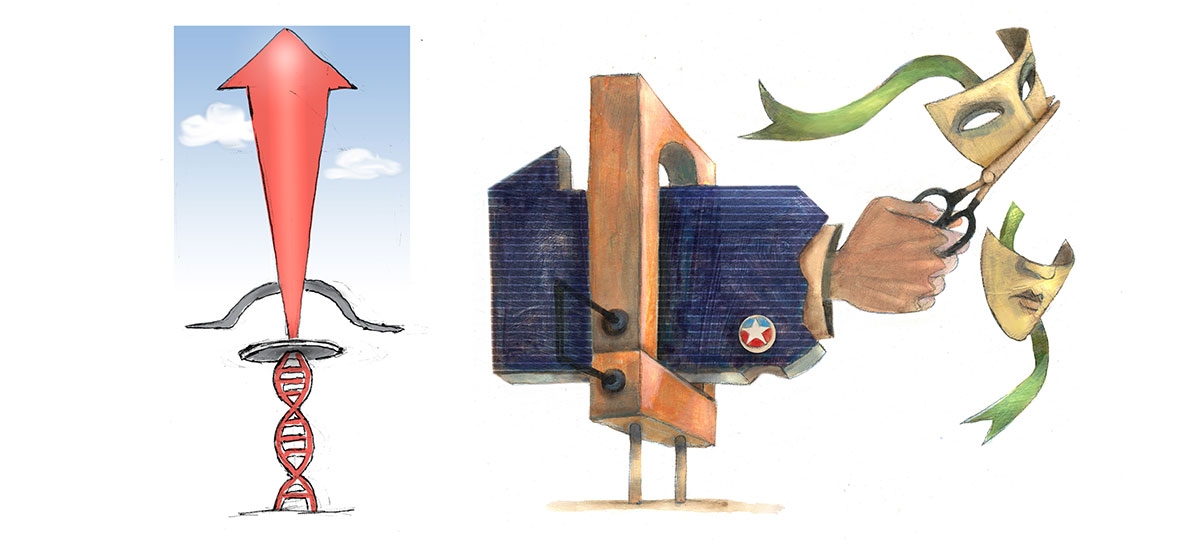Cure Alzheimer’s Fund & Our State Leaders

Long involved in charitable giving, East End residents Jacqui and Jeff Morby wanted to do more. They wanted to affect the lives of others for the better. So five years ago, they created the Cure Alzheimer’s Fund.
It’s estimated that Alzheimer’s care currently costs about $120 billion a year, or some 15 percent of the combined cost of Medicare and Medicaid. With Alzheimer’s growing at about 5 percent a year, costs are projected to be unsustainable.
To prevent that scenario, the Morbys have assembled the nation’s best researchers under the leadership of Harvard’s Dr. Rudy Tanzi. From its offices Downtown and in Boston, the Cure Alzheimer’s Fund provides $3 million a year to the research team, and that money is spent on a single focus—curing the disease by 2020.
The results have been remarkable. The team has completed its project to map Alzheimer’s genes, essentially discovering more than 70 genes bearing positively or negatively on the disease. For that work, Time magazine and CNN recognized the fund for achieving one of the top 10 medical breakthroughs of 2008.
The next step is to develop a cure.
The Morbys are confident they’ll find it within 10 years, perhaps sooner. They credit the team’s speed, effectiveness and “rifle-shot” approach. For assembling and funding the researchers, for removing obstacles in their way, and for mapping the Alzheimer’s genes, we’re putting the Morbys and their team on our pedestal.
If their success continues, Pittsburgh and the world will have more to celebrate.
In the stocks: Our state leaders, ignorance of the arts
Nobody doubts the difficulty of balancing the state budget in this economy. In October, Pennsylvania became the last state in the country to pass a budget, 101 days after the start of its fiscal year. Weeks earlier, however, as pressure mounted, lawmakers agreed to raise revenue by taxing the state’s arts nonprofits. Fortunately, this misguided sales tax on subscriptions, tickets sales, art exhibitions and museum admissions was excluded from the final agreement.
It is nonetheless alarming that the governor and legislators would seek to raise a trivial sum at the expense of arts nonprofits, when these nonprofits are beset by a revenue crisis. And it gives fresh and unfavorable insight into the priorities of our states’s leaders. If they want to tax “entertainment,” why single out struggling arts nonprofits as opposed to, for example, the profitable professional sports industry?
It’s difficult to fathom. What is clear, however, is that legislators don’t appreciate the value of nonprofit arts bring to the state. Consider the Pittsburgh Cultural Trust. The most visible of the region’s performing arts nonprofits is celebrating 25 years of not only facilitating world-class programming, but also playing a pivotal role in the region’s economic transformation. On the other end are small nonprofits who add to Pittsburgh’s vitality on a shoestring budget.
On a brighter note, not everyone is oblivious to the value of the nonprofits. Just in time for holidays, The Pittsburgh Foundation has created the Charitable Gift Card, which gives nonprofit supporters an easy way to give a present that boosts the nonprofit sector. For more information, email Charles Stout at stoutc@pghfdn.org.





